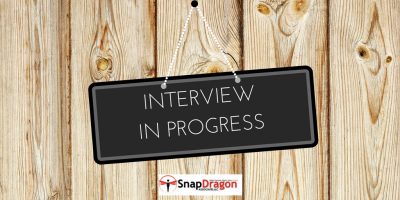Do’s and Don’ts to a Successful Interview
Posted on May 23, 2017


The hard part of the job search is done and you have gained enough interest from the hiring manager to want to meet you. Remember, they are interested and now you have to close the deal without overselling.
It’s time for some tips on interviewing. Also included are typical interview questions. Yes, it is recommended that you practice your interview, just as you would practice a presentation to a major client. Selling ourselves is the toughest sale of our lives and I am always amazed how many of us struggle doing it. Review these tips and do a practice run and you will do great:
- Do take a practice run to the location where you are having the interview or be sure you know exactly where it is and how long it takes to get there
- Do your research and know the type of job interview you will be encountering
- Do prepare and practice for the interview, but don’t memorize or over-rehearse your answers
- Do dress the part for the job, the company, and the industry. Do dress on the side of conservatism; no hats or sun glasses on your head, dress to impress
- Do plan to arrive about 10-15 minutes early. Late arrival for a job interview is never excusable. If you are running late, do phone the company
- Do greet the receptionist or assistant with courtesy and respect
- Keep in mind that the whole company is interviewing, even when you think they are not
- Be patient if you have to wait a few minutes before your meeting begins and avoid being on your phone
- Don’t chew gum during the interview
- If presented with a job application, do fill it out neatly, completely, and accurately
- Do bring extra resumes to the interview (if you have a job skills portfolio, do bring that with you)
- Don’t rely on your application or resume to do the selling for you. No matter how qualified you are for the position, you will need to sell yourself to the interviewer
- Do greet the interviewer(s) by title (Ms., Mr., Dr.) and last name if you are sure of the pronunciation (If you’re not sure, ask the receptionist about the pronunciation before going into the interview)
- Do shake hands firmly. Don’t have a limp or clammy handshake
- Do wait until you are offered a chair before sitting and remember body language and posture; sit upright, look alert, and be interested at all times. Don’t fidget or slouch
- Don’t tell jokes during the interview
- Do make good eye contact with your interviewer(s)
- Do show enthusiasm in the position and the company
- Don’t smoke during the interview, even if the interviewer does and offers you a cigarette and refrain from smoking beforehand so that you smell like smoke.
- Brush your teeth, use mouthwash, or have a breath mint before the interview
- Do avoid using poor language, slang, and pause words (such as “like,” “uh,” “dude” and “um”)
- Don’t be soft-spoken. A forceful voice projects confidence, but don’t come off as aggressive
- Don’t act as though you would take any job or are desperate for employment
- Do avoid controversial topics
- Don’t say anything negative about former colleagues, supervisors, or employers
- Do make sure that your good points come across to the interviewer in a factual, sincere manner
- Don’t ever lie; answer questions truthfully and succinctly
- Do stress your achievements. Don’t offer any negative information about yourself
- Don’t answer questions with a simple “yes” or “no.” Describe those things about yourself that showcase your talents, skills, and determination by giving examples
- Don’t bring up or discuss personal issues or family problems
- Don’t respond to an unexpected question with an extended pause or by saying something like, “boy, that’s a good question.” Repeat the question out loud or ask for the question to be repeated to give you a little more time to think about an answer. Also, a short pause before responding is okay
- Do always conduct yourself as if you are determined to get the job you are discussing
- Don’t answer cell phone calls during the interview, better yet, leave it in your car and if you must have it with you, silence it.
- Do show what you can do for the company rather than what the company can do for you
- Don’t inquire about salary, vacations, bonuses, retirement, or other benefits until after you’ve received an offer
- Be prepared for a question about your salary requirements, but do try and delay salary talk until you have an offer
- Do ask intelligent questions about the job, company, or industry. Questions concerning goals of the company, metrics used to measure success, etc. show interest in the company and position
- Do close the interview by telling the interviewer(s) that you want the job and asking about the next step in the process (Some experts even say you should close the interview by asking for the job)
- Ask when it would be appropriate to follow up on the meeting or when you should be hearing back from the company
- Do try and get business cards from each person you interviewed with or at least the correct spelling of their first and last names. Don’t make assumptions about simple names, was it Jon or John, get the spelling correct
- Do immediately take down notes after the interview concludes so you don’t forget crucial details
- Do write thank you letters or e-mail within 24 hours to each person who interviewed you





